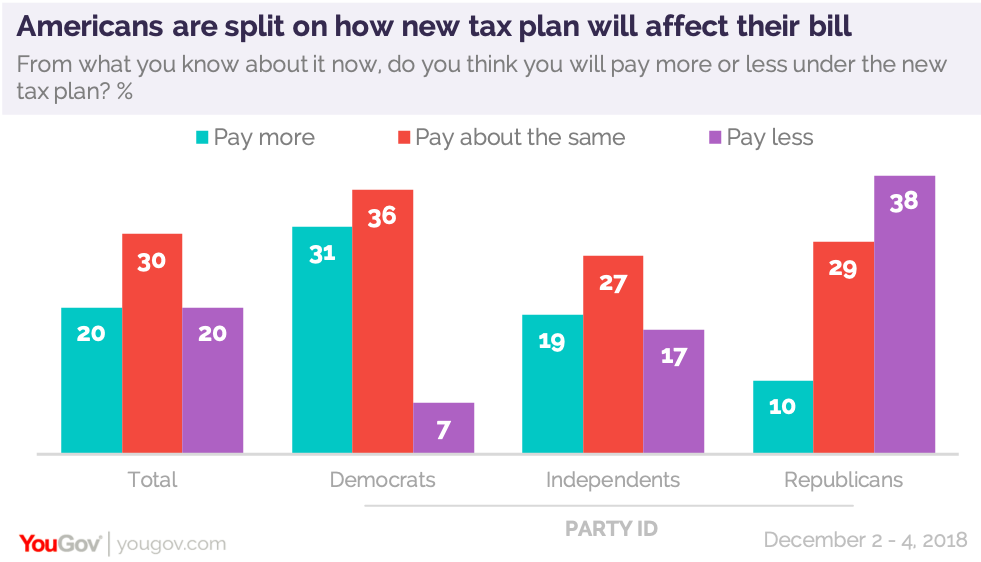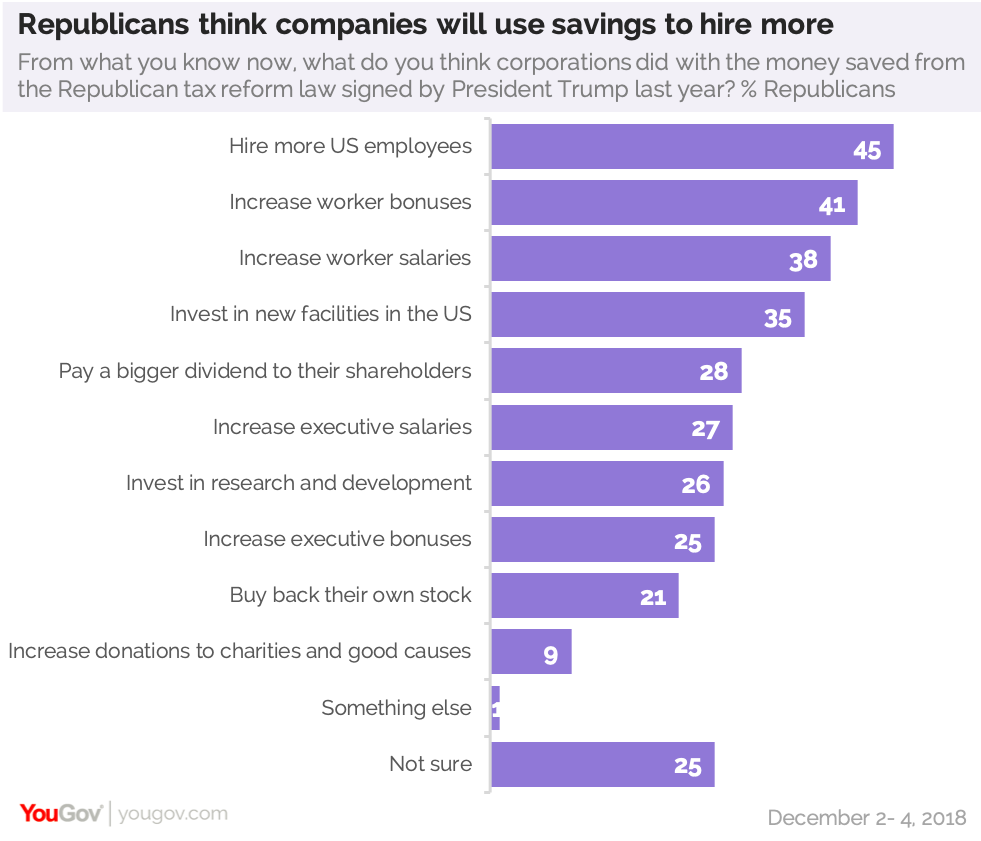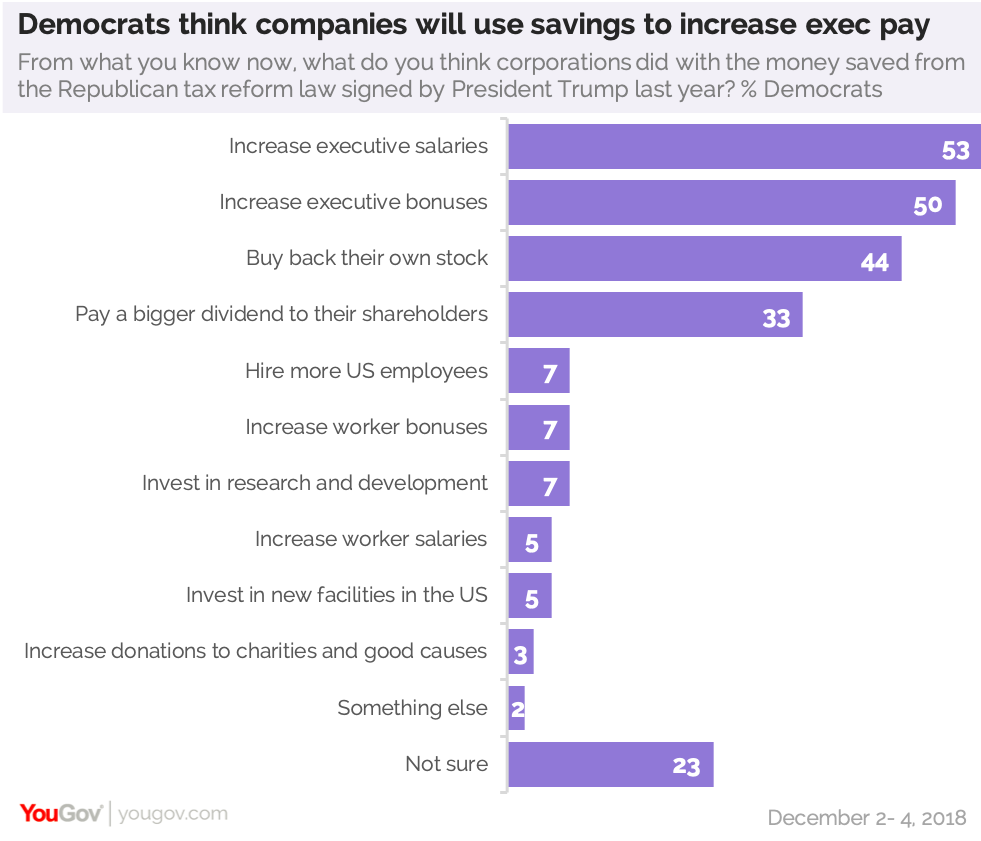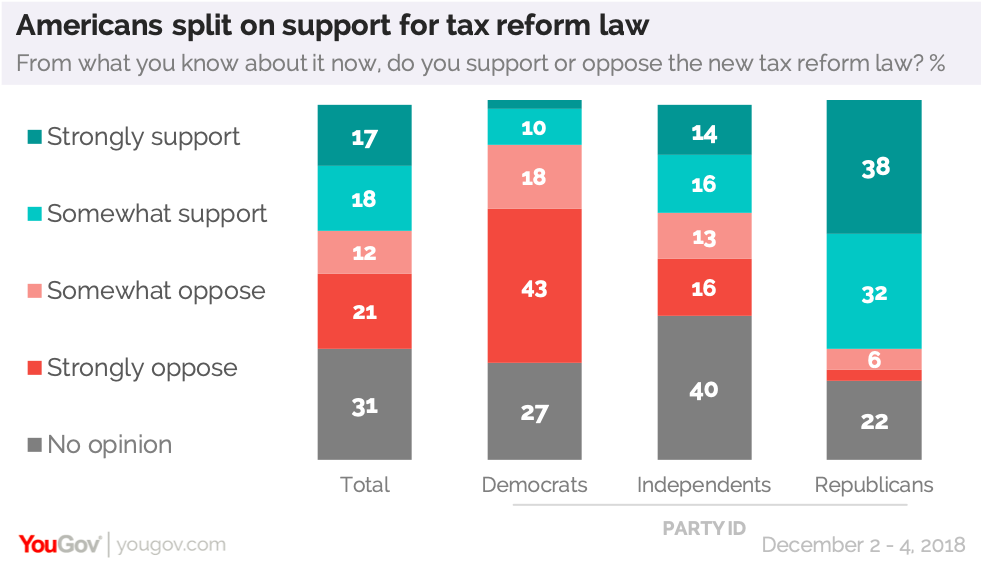Across party lines, Americans are split on whether tax law will mean they pay more or less in taxes
Ever since the new tax reform law was passed last year, the country has been divided between those who think it will reduce their taxes and those who say it will increase them. That continues to be the case in the most recent Economist/YouGov Poll, with Republicans and Democrats on opposite sides on what they expect the bill will do to their personal finances – as well as on how corporations are using their savings.

The bill passed a year ago on a mostly party line vote. Opinion has remained split on party lines since then. In theory, salaried Americans should have seen a reduction in federal tax deductions from their paychecks throughout 2018, but few seem to have changed their view of the law during the year. But there are other tax law changes, too, including the limit on the amount of state and local taxes which can be deducted, and the elimination of interest deductions on home equity lines (though mortgage interest, medical expenses, and charitable contributions remain deductible). Some may be thinking of those changes when they answer the question.
The partisan lens through which Americans see the law itself also exists in the public’s assessment of how corporations are using their new tax reductions. Republicans believe corporations are using the tax money saved to benefit workers through increased hiring, salaries, or worker bonuses. They also see the money used for investment in new facilities or in research and development.

Democrats are much more likely to believe company savings are used for the benefit of executives or shareholders. Independents tend to give answers that are more like those Democrats give, not the responses given by Republicans.

While American overall are split on whether they support or oppose the tax plan (with nearly one in three having no opinion), Democrats and Republicans hold very clear views. By more than four to one Democrats oppose the law, by more than seven to one Republicans support it. Democratic opinion of the law was even more negative when it was first adopted.

See full toplines and tables results
Image: Getty







